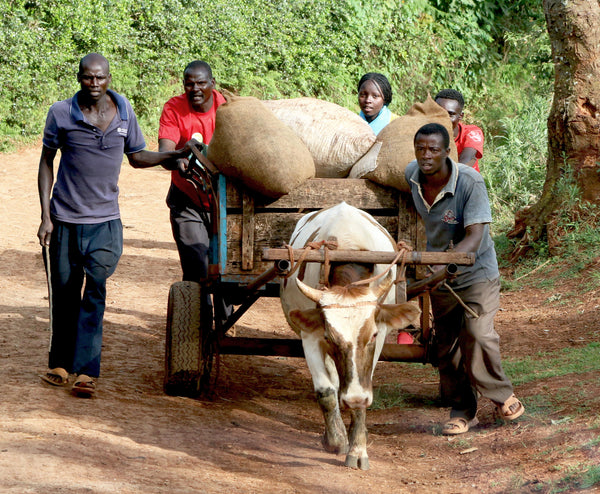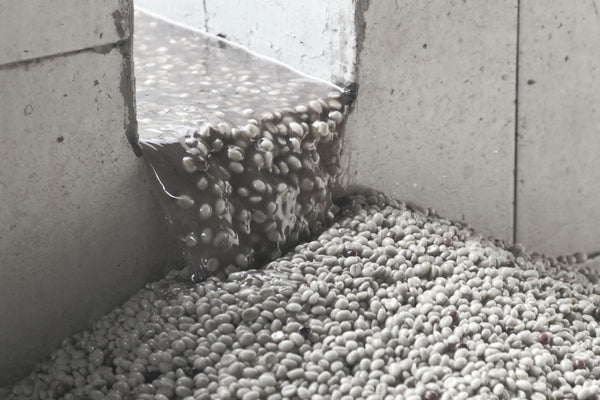New Kenyan Coffee on the Menu
Despite its close proximity to Ethiopia (widely considered the birthplace of coffee), Kenya is still relatively new to coffee growing. Cultivation began with European missionaries bringing coffee and cultivating it on large plantations. Back then, it was an industry based on colonialist efforts to develop new opportunities for revenue. However, after Kenya declared independence the coffee farms were mostly divided and moved into the hands of native people.
Today, the majority of Kenyan farmers are tending small plots with 100 coffee trees or so. Coffee farmers will often organize cooperative societies that act as an umbrella organization for the farms and help to secure fair wages and support for smallholders. Members bring their harvest to centrally located mills where the coffees are weighed, sorted, and combined with the harvests from other nearby farms to create a larger lot to process and export.

Coffee cherries on their way to the factory for processing, courtesy of Cafe Imports
This particular coffee comes from the New Murarandia Farmers Cooperative Society, a group of 710 members in the Mathioya division of Murang'a County, a region known not just for coffee but also tea, macadamia nuts, and fruit. The members of the New Murarandia FCS bring their coffee to Ther'i, a coffee factory located just outside of the town with the same name. These farmers grow an average of 130 trees, a mix of SL-28, SL-34, Riuru 11, and Batian varietals that are mixed together during processing.

Washed parchment draining into a washing receptical, courtesy of Cafe Imports
All of the water used in processing in Ther'i comes from the nearby Thumara River. Two soaking pits are used to remove processing impurities from the water and prevent any contamination of fresh water on the factory site. The factory takes every step to ensure the water is cleaned before re-entering the water table, as it is also a local source of drinking water.
Kenyan coffees are primarily sold through an auction at the Nairobi Coffee Exchange, or through direct sales called "Second Window." Utilizing the "Second Window," allows Cafe Imports to build relationships with mills and estates to create smaller, more traceable lots like this coffee to roasters like us. We're thrilled to offer this complex Kenyan coffee. It's a pleasant, creamy cup with notes of tamarind candy and malted milk chocolate. This is a limited edition coffee, sold in 8oz tubes in our cafes and online store.
